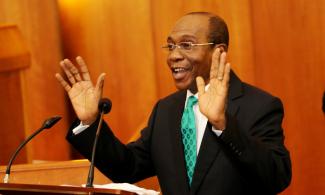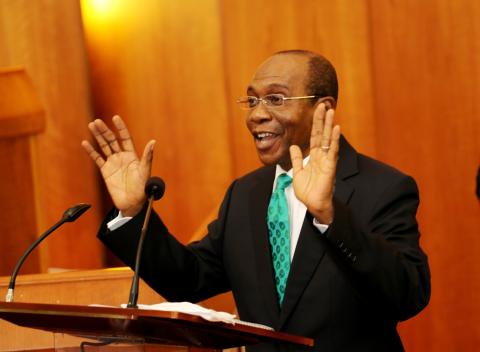
Six of the 11 members of the Monetary Policy Committee (MPC) voted to decrease the Monetary Policy Rate by 50 basis points to 13.5%.

More than two years after pegging the interest rate on lending between Money Deposit Banks at 14%, six of the 11 members of the Monetary Policy Committee (MPC), voted to decrease the Monetary Policy Rate by 50 basis points to 13.5%.
The MPC, which is composed of the governor and deputy governors of the Central Bank of Nigeria (CBN), after indications that the economy could absorb increased lending to the real sector of the economy, voted for a reduction in the inter-bank lending rate.
In the communiqué issued by Godwin Emefiele, Governor of the Central Bank of Nigeria (CBN), at the end of its two-day meeting held from March 25 to 26, 2019, the MPC also noted that the government has been unable to generate revenue to support development as “enunciated in the Economic Recovery Growth Plan (ERGP)”.
According to the MPC, this has caused an increase in the government’s cost of borrowing money, “leaving room for continued debt financing, not previously envisaged”.
The 11-member team, whose policy influence is limited to borrowing rates and foreign exchange matters, urged the Nigerian government and the fiscal policy team, the ministries of finance as well as budget and planning, to “closely monitor the public procurement process”.
The communiqué read: “The MPC noted the encumbrances and constraints imposed on fiscal policy and the associated vulnerabilities, as it has consistently failed to mobilise sufficient revenues to support development as enunciated in the ERGP, leaving room for continued debt financing, not previously envisaged. Against this backdrop, it is imperative for monetary policy to provide the much-needed leverage to support output growth and employment generation in the country.
“On a more cautious note, the Committee expressed concern and sympathises with the fiscal authorities, over the growing fiscal deficit, external debt and debt service, and urged the need to closely monitor the public procurement process in order to improve efficiency in public resource management.”
Speaking on the expectations for the economy, the MPC said the economy is on a trajectory of growth. According to the committee, the growth forecast 2.0 per cent prediction from the International Monetary Fund, 2.2 per cent by the World Bank and 2.74 by the CBN, is driven by the enhanced flow of credit to the real sector; sustenance of a stable exchange rate; moderating inflation rate; CBN special interventions in growth-enhancing sectors, especially, agriculture and non-agricultural SMEs; improved growth in the non-oil sector and the effective implementation of the ERGP by the Nigerian government.
With the growth of Small and Medium Scale Enterprises as the power house of its projection, the MPC encouraged the partnership between the Bankers’ Committee and the Nigeria Incentive-Based Risk Sharing System for Agricultural Lending (NIRSAL) that is now purposed to establish a national microfinance bank to cater to the MSMEs of the economy. NIRSAL was designed as a policy that will share the risks farmers encounter in planting, harvesting and selling their commodities over a long period of time. Entrenching the policy as a micro finance bank, would increase the lending points to the agricultural industry, as the Agriculture Development Bank, the Bank of Industry and the Anchor Borrowers Scheme also provide channels of cheap loan to the sector.
On the global front, MPC holds the view that the macroeconomic indicators appear vulnerable and uncertain.
“The medium-term outlook for the global economy continues to be uncertain with indications of increasing macroeconomic vulnerabilities and downward revision of the forecast for global output growth.
“Developments in the first quarter of 2019 were characterised by legacy headwinds from the second half of 2018. These include: the continued trade war between the US and China, policy uncertainty amongst advanced economy central banks; persisting uncertainties surrounding BREXIT negotiations; vulnerabilities in major financial markets and rising public debt in some Emerging Market and Developing Economies (EMDEs). Consequently, global output growth for 2019 was downgraded by the IMF from 3.7 per cent to 3.5 per cent.”
The team also voted to keep Cash Reserve Ratio (CRR), a percentage of total deposit the bank must not go below, at 22.5 per cent and the liquidity ratio, value of assets that can be quickly turned to cash, at 30 per cent.